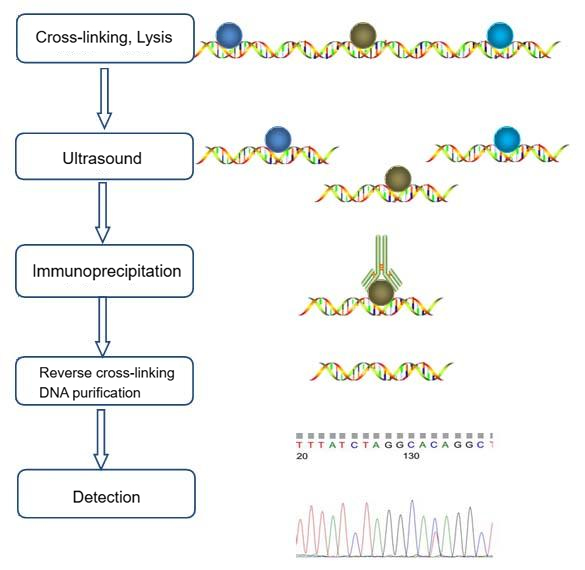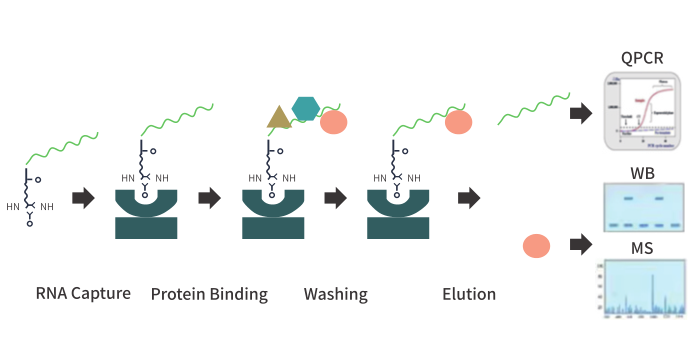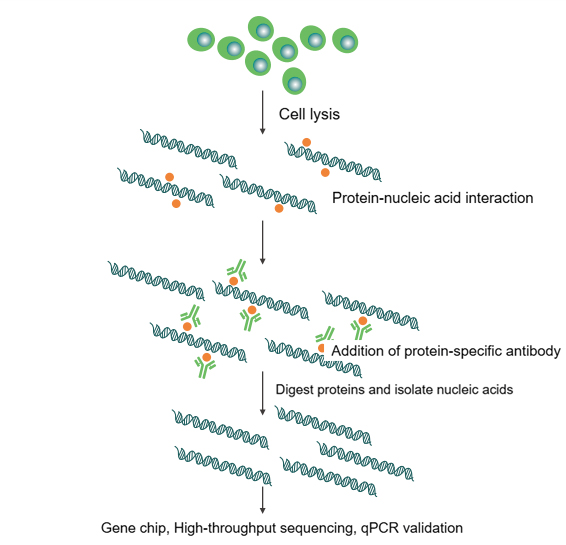- Cart 0
- English
Can't Tell the Difference Between CoIP and Pull Down? This Article Will Do!
March 12, 2025
Clicks:555
New Product Launch
The Aibixin Interaction Series Assay Kits are now available! CoIP and ChIP kits are our old reliables, which have received numerous positive reviews since their launch! The literature volume for abs955 has surged rapidly, with nearly 200 publications and the highest impact factor reaching 37.3! The literature volume for ChIP kits is also growing rapidly. Recently, the Aibixin Interaction Series has added several new kits! Today, let's briefly analyze the differences between these kits for beginners.
Table 1 Aibixin Interaction Kits
|
Catalog No. |
Product Name |
Specifications |
|
RNA Pull Down Kit |
6T |
|
|
DNA Pull Down Kit (Plant) |
6T |
|
|
DNA Pull Down Kit (Animal) |
6T |
|
|
RNA Immunoprecipitation (RIP) Kit |
6T |
|
|
Chromatin Immunoprecipitation (ChIP) Kit |
22T | |
|
Immunoprecipitation (IP/CoIP) kit |
50T |
|
|
Protein A/G Magnetic IP/Co-IP Kit |
10T/50T |
DNA Pull Down
Principle: DNA pull down is an analytical technique used to study protein-DNA interactions. It is commonly employed to analyze transcription factors and other regulatory proteins that bind to the regulatory regions of target genes.
This technique involves designing specific DNA probes for the target region and labeling them with biotin. The labeled probes can specifically bind to streptavidin-conjugated magnetic beads. After incubation with total protein extracts, proteins that interact with the DNA probes can form a complex with the probes. The resulting bead-DNA probe-protein complexes are washed to remove non-specifically bound proteins. The target DNA probe-protein complexes are then eluted and identified by Western Blot or Mass Spectrometry (MS). This method is widely used for studying transcription factors of specific genes.

Schematic of DNA Pull Down
ChIP Principle
Chromatin Immunoprecipitation (ChIP) is an ideal technique for studying protein-DNA interactions in vivo and is an effective method for investigating the interactions between transcription factors and promoter regions.
In living cells, proteins and DNA are crosslinked, and the chromatin is randomly fragmented into small segments using ultrasound. Antibodies specific to the target protein are used to immunoprecipitate DNA-protein complexes, thereby specifically enriching chromosomal fragments bound to the target protein. The DNA can be used for subsequent quantitative PCR (qPCR) or high-throughput sequencing (seq). This technique is commonly used to verify or identify DNA sequences bound to known proteins.

Schematic of ChIP
RNA Pull Down
RNA pull-down is a technique used to study RNA-protein or RNA-RNA interactions within cells.
RNA is labeled (e.g., with biotin) and then incubated with cell lysates to form RNA-RNA/protein complexes. These complexes are subsequently detected to identify bound RNA or proteins. After elution, the target RNA interactions with specific RNA molecules are analyzed using fluorescent quantitative PCR (RNA pull down-QPCR) or high-throughput sequencing (RNA pull down-seq). The interactions between target RNA and proteins are further examined using Western blot (pull down-WB) and mass spectrometry (pull down-MS) techniques.

Schematic of RNA Pull Down
RIP Principle
RIP technology (RNA Binding Protein Immunoprecipitation) is a technique used to study RNA-protein interactions within cells and is a powerful tool for understanding the dynamics of post-transcriptional regulatory networks.
This technique uses specific antibodies against target proteins to precipitate RNA-protein complexes. The RNA bound to these complexes is then purified and analyzed using q-PCR validation or high-throughput sequencing.

Schematic of RIP
GST Pull-Down Kit
GST Pull-Down assays are a primary method for verifying in vitro protein-protein interactions. Affinity proteins fused with GST are expressed in vitro and immobilized on glutathione affinity resin as "bait proteins." Total proteins from cells or tissues are incubated with these "bait proteins" to capture "target proteins." The interactions are then analyzed after elution and detection.

Schematic of GST Pull-Down
CoIP Principle
Immunoprecipitation (IP/CoIP) is based on the specific affinity between antibodies and proteins. It captures and enriches target proteins from complex samples by binding antibodies specific to the protein or antigen. This method can also be used to identify interacting proteins or other biomolecules.

Schematic of CoIP
GST pull down assays can be used when in vivo interaction assays are not feasible, in vivo samples are unavailable, or specific primary antibodies are lacking, but protein interaction conclusions need further validation.
Related Products
|
Catalog No. |
Product Name |
Specifications |
|
RNA Pull Down Kit |
6T |
|
|
DNA Pull Down Kit (Plant) |
6T |
|
|
DNA Pull Down Kit (Animal) |
6T |
|
|
RNA Immunoprecipitation (RIP) Kit |
6T | |
|
Chromatin Immunoprecipitation (ChIP) Kit |
22T |
|
|
Immunoprecipitation (IP/CoIP) kit |
50T |
|
|
Protein A/G Magnetic IP/Co-IP Kit |
10T/50T |
Absin provides antibodies, proteins, ELISA kits, cell culture, detection kits, and other research reagents. If you have any product needs, please contact us.
|
Absin Bioscience Inc. |
 Follow us on Facebook: Absin Bio Follow us on Facebook: Absin Bio |
